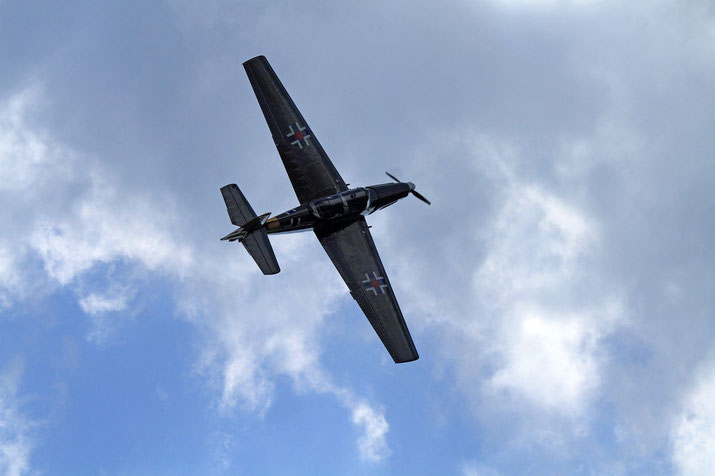Operation Sea Lion: Hitler's plan to invade Britain

In the summer of 1940, the fate of Great Britain hung in the balance as Nazi Germany launched its most audacious plan yet - Operation Sea Lion.
The plan was simple in theory, yet incredibly complex in practice: invade Britain by sea and air, establish a foothold on the southern coast, and push inland to capture London.
The stakes were high, and the outcome of this invasion could have changed the course of history. In this blog post, we will explore the details of Operation Sea Lion, its significance, and why it ultimately never happened.
What was 'Operation Sea Lion'?
Operation Sea Lion was the code name given to Nazi Germany's planned invasion of Great Britain during World War II.
In the summer of 1940, Nazi Germany had conquered much of Western Europe, including France.
Adolf Hitler, the leader of Nazi Germany, believed that Britain would soon surrender as well. However, the British refused to give in and continued to fight on.
The plan
In July 1940, Hitler ordered the preparation of Operation Sea Lion, which was to be the invasion of Britain.
The plan was to land a large number of German troops on the southern coast of England, specifically the beaches of Sussex, Kent, and Hampshire. Once ashore, the German forces would push inland and capture London.
The plan was ambitious, and the Germans faced many obstacles. One of the most significant challenges was the English Channel, which separated Germany from Great Britain.
The Germans needed to cross the channel to invade Britain, and the British Navy had control of the waters.
To overcome this challenge, the Germans planned to use their air force, the Luftwaffe, to gain air superiority over the channel and to provide cover for the invasion fleet.
The Germans began preparing for the invasion in earnest. They assembled a vast invasion force of over 2,000 ships and landing craft. They also trained and equipped an army of over 160,000 soldiers, many of whom were veterans of the campaigns in Poland and France.
The impact of the Battle of Britain
The invasion was scheduled to begin in early September 1940.
However, the German high command was concerned about the strength of the British defenses and the ability of the Luftwaffe to provide air cover.
The Germans decided to postpone the invasion until the weather improved and the Luftwaffe could gain air superiority.
In the meantime, the Luftwaffe began a campaign of bombing raids against British cities and airfields.
The Battle of Britain, as it became known, was a crucial turning point in the war. The British Royal Air Force, aided by radar and superior tactics, were able to repel the Luftwaffe and deny them air superiority.

With the failure of the Battle of Britain, Hitler realized that Operation Sea Lion was no longer viable.
The Germans did launch a number of smaller-scale attacks against the British coast, but they were ultimately unsuccessful. Operation Sea Lion was officially canceled in October 1940.
How realistic would an invasion have been?
Operation Sea Lion was not a guaranteed success, and its likelihood of success is a matter of debate among historians.
The operation faced significant challenges, including the English Channel, which separated Germany from Great Britain and the Royal Navy's control of the waters.
Additionally, the British had a well-trained and well-equipped army and air force, and their defenses were strengthened significantly in preparation for the invasion.
The success of Operation Sea Lion would have also depended on the German army's ability to capture and hold strategic locations in southern England while facing strong resistance from the British military and civilians.
The Germans would have also faced logistical challenges in supplying their troops and maintaining lines of communication across the English Channel.
Moreover, the failure of the German Luftwaffe to gain air superiority during the Battle of Britain was a significant factor that led to the cancellation of Operation Sea Lion.
The Royal Air Force's victory in the Battle of Britain deprived the Germans of the air cover necessary for a successful invasion.
A lucky escape for Britain?
It is fair to say that Britain's success in defending against Operation Sea Lion can be seen as a lucky escape.
The stakes were high, and a successful German invasion of Britain could have changed the course of history, leading to the defeat of Great Britain and potentially altering the outcome of World War II.
What do you need help with?
Download ready-to-use digital learning resources
Copyright © History Skills 2014-2025.
Contact via email
With the exception of links to external sites, some historical sources and extracts from specific publications, all content on this website is copyrighted by History Skills. This content may not be copied, republished or redistributed without written permission from the website creator. Please use the Contact page to obtain relevant permission.





